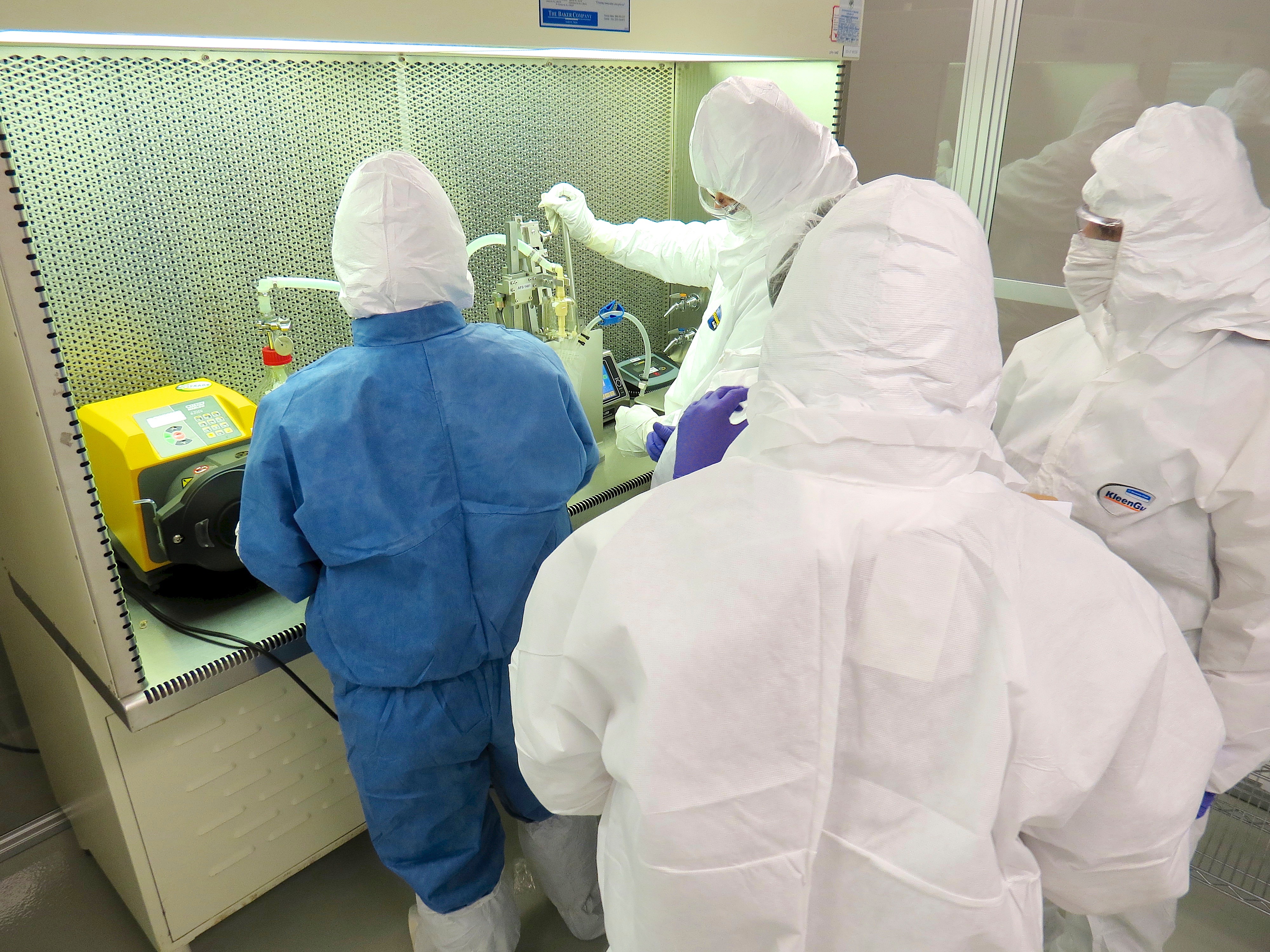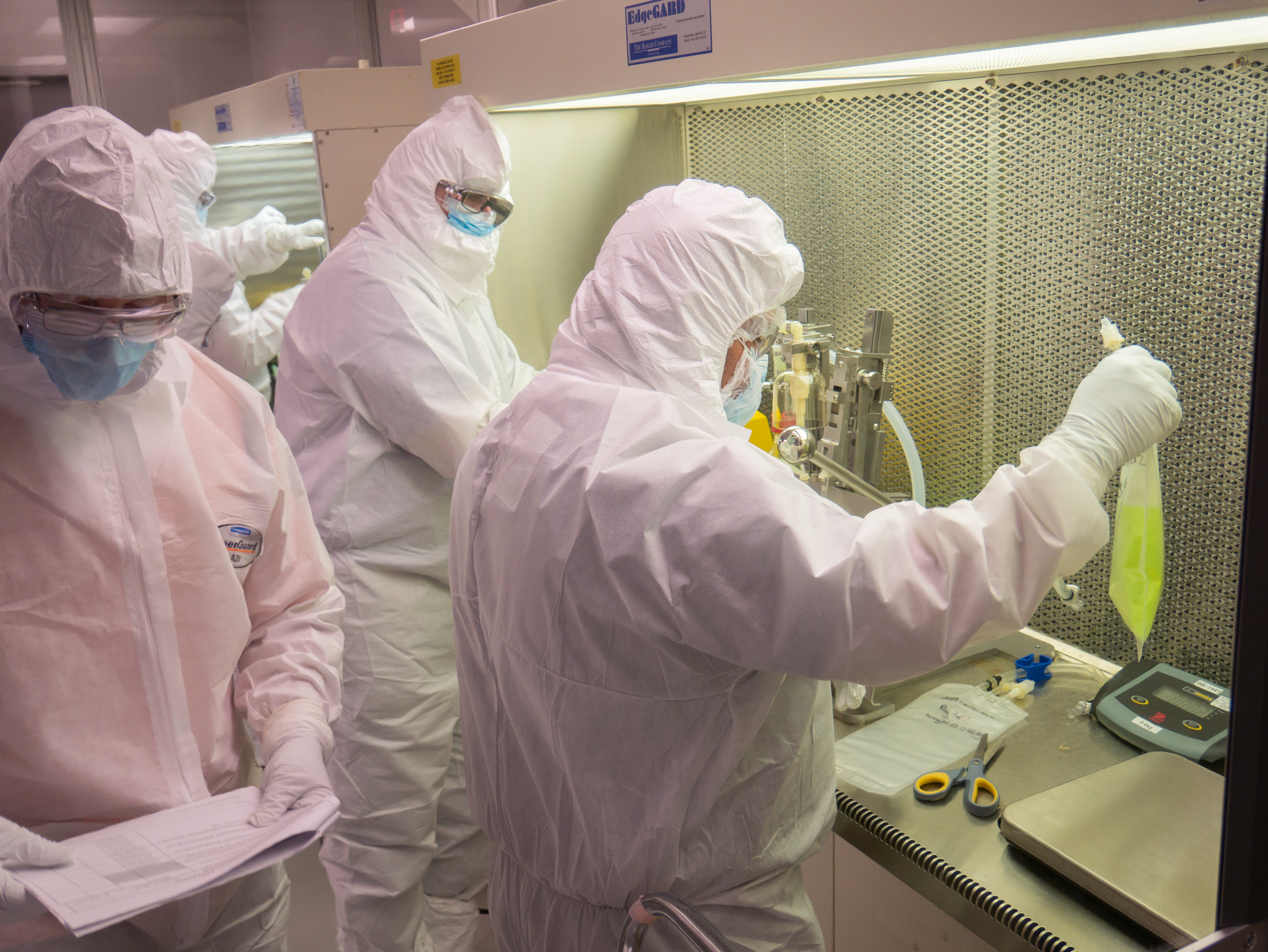“Manufacturing in a state of control.” Sounds simple. However, the reality facing companies that produce products via the ever-changing platforms in biomanufacturing where product protection, safety, and efficacy are the foundation principles. Production operations must adhere to the “business model” of the manufacturing enterprise while not running afoul of the vast global network of regulatory agencies, often not in complete harmonization as ICH would lead us to believe.
This advanced, hands-on training opportunity will implement the global body of knowledge of ISPE to advance the understanding of drug substance and drug product manufacturing, utilizing the commercial scale operational aspects of the Biomanufacturing Training and Education Center (BTEC - located on North Carolina State Campus in Raleigh, NC) through a series of immersive and hands-on exercises that address current, real world manufacturing challenges. The operational resources of BTEC will provide support as the thought leadership of ISPE’s extensive biomanufacturing curriculum and their Baseline and Good Practice Guides provide a roadmap to understanding and achieving the “state of control” that represents success.
Objectives:
- Understanding how “state of control” can be defined and achieved through different design and development decisions
- Identification of the product-process-facility paradigm being essential to the ability to optimize manufacturing under current Good Manufacturing Practice
- The application of good aseptic practice as the foundation to achieving safety and efficacy goals
- Apply current Industry lessons learned to achieve improved operational efficiency
Using the commercial-scale operations of the BTEC Facility as an instructional aide, Attendees will participate in real-world exercises that focus on controlled manufacturing scenarios. These exercises will enlist the collaboration of BTEC Staff to simulate scenarios requiring critical thinking and analysis of information in a Team environment.
These Team exercises will be supplemented with additional course scenarios that will provide thought leadership solutions to real-world challenges based on actual Industry case study information.
- Attendees of this advanced training course will have the hands-on experience to understand the concepts of “manufacturing in a state of control” as seen through the lens of global regulatory bodies, with a focus on consumer goods such as human therapeutics.
- Attendees will be provided guidance on current Industry practice across different biomanufacturing platforms, modalities, and operational approaches.
- Understanding that the impact of process design and development drives every aspect of facility design related to contamination control; protection of the product.
- Attendees will see the emphasis being placed by Regulators on risk assessment when focused on safety of the Patient and efficacy of the product driving the key decisions from early-stage clinical development to commercial launch.
- How the pragmatic implementation of process closure provides significant impact on cost-of-goods.
- How the learnings from Others shape the interpretation and advancement of guidance compliance.
Day 1
- Introduction to the BTEC Facility
- Defining Good Aseptic Practice
- Regulatory Guidance
- Defining State of Control
- Safe & Effective
- QRM
- Process Development
- CMC
- QbD Basis
- The Enterprise Model of Manufacturing
- Process Driven Design
- Modalities
Day 2
- Regulatory Inspections
- Systems-based
- Enforcement Actions
- Manufacturing Process Design
- Drug Substance
- Drug Product
- Contamination Control
- Quality by Design and Design Space
- Process Qualification
- Process/Facility Alignment
- Synergy of the Attributes
- Closure Impact
- Optimization
- Lessons Learned
Daily Schedule at a Glance
Training course times are listed in Eastern Standard Time (EST). Find your personal viewing time on the World Clock.
| 0800 – 1000 | Content/Exercises |
| 1000 - 1015 | Morning Break |
| 1015 - 1200 | Content/Exercises |
| 1200 - 1300 | Lunch |
| 1300 - 1430 | Content/Exercises |
| 1430 - 1445 | Afternoon Break |
| 1445 - 1700 | Content/Exercises |
| 0800 – 1000 | Content/Exercises |
| 1000 - 1015 | Morning Break |
| 1015 - 1200 | Content/Exercises |
| 1200 - 1300 | Lunch |
| 1300 - 1430 | Content/Exercises |
| 1430 - 1445 | Afternoon Break |
| 1445 - 1700 | Content/Exercises |




.jpg)
.jpg)